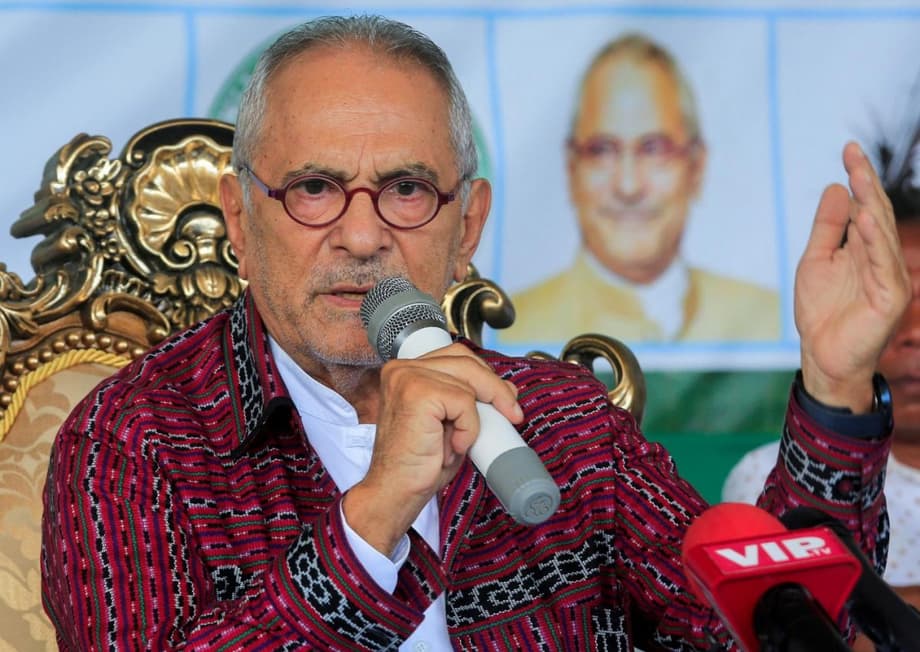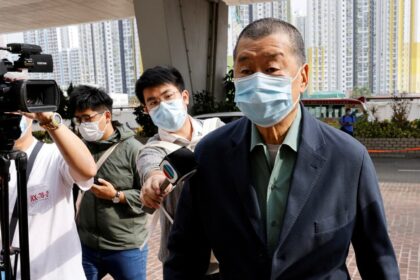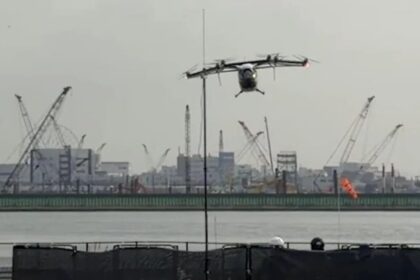How Timor-Leste won a seat at ASEAN
On October 26, 2025, Timor-Leste will be formally welcomed as the 11th member of the Association of Southeast Asian Nations at the 47th ASEAN Summit in Kuala Lumpur. The decision closes a quest that began with independence in 2002 and a membership application in 2011. Following agreement in principle in 2022 and observer status in 2023, ASEAN members have now endorsed full accession after steady progress on a membership roadmap and months of final checks. It is the longest accession process in ASEAN history, a sign of how the bloc has professionalized admissions with detailed rules and criteria.
- How Timor-Leste won a seat at ASEAN
- Two decades of waiting: the timeline
- Why some members hesitated
- Supporters who kept the door open
- Myanmar, criticism and a late stage reset
- What membership brings to Timor-Leste
- How Timor-Leste can broaden ASEAN’s reach
- Is ASEAN set for more members
- Key challenges to watch in the first year
- What to Know
The step brings a youthful and highly democratic nation of about 1.3 million people into Southeast Asia’s core regional forum. Malaysia, serving as ASEAN chair, coordinated the final steps and the legal instruments that seal the decision at the summit. Singapore also backed the move, while Indonesia, Brunei, Thailand, Cambodia, the Philippines and others have supported Timor-Leste’s entry for years. The ASEAN secretary general briefed ministers that the documentation is on track for leaders to endorse, reflecting a consensus that the country is ready to join the community.
The final stretch included a diplomatic thaw with Myanmar, which had objected to Dili’s support for the opposition in Myanmar after the 2021 coup. Recent exchanges saw both governments reaffirm core ASEAN principles and move to restore diplomatic ties. Inside ASEAN, the Coordinating Council Working Group continued to review progress against the Roadmap for Timor-Leste’s Full Membership, while member states and partners funded capacity building to help Timor-Leste meet the economic, political, and socio cultural commitments that come with membership.
Two decades of waiting: the timeline
Timor-Leste’s path to ASEAN began the day it became an independent state in 2002. The government formally applied to join in 2011. ASEAN sent fact finding teams and, after years of debate about readiness, leaders agreed in principle in 2022 that Timor-Leste would become the 11th member. Dili received observer status in 2023 and started attending summit and ministerial meetings. In 2023, the bloc adopted a detailed roadmap that listed practical steps such as staffing delegations, hosting ASEAN events, and aligning legislation with community agreements.
Throughout 2025, Malaysia convened frequent reviews, including meetings of the ASEAN Coordinating Council Working Group to track progress against the roadmap. Foreign ministers in Kuala Lumpur agreed in mid year to expedite the final documents so leaders could sign a declaration of admission and an instrument for Timor-Leste to accept the ASEAN Charter. Timor-Leste also advanced on trade governance by entering the World Trade Organization in 2024, which supports alignment with regional and global trade rules. For a snapshot of the official process, see the ASEAN account of recent reviews at the ACCWG meeting here.
Why some members hesitated
Concerns centered on capacity, economics, and administrative bandwidth. Timor-Leste’s economy remains small, about 2.1 billion dollars in 2023, and heavily reliant on petroleum revenue. The Greater Sunrise gas field remains stalled, and diversification into agriculture, fisheries, tourism, and light industry has been limited. Infrastructure, from transport to digital networks, needs investment. The private sector is nascent, and many firms would struggle to compete regionally without support. Policymakers inside ASEAN asked whether admitting a very small and less developed economy might slow the pace of the ASEAN Economic Community.
The administrative workload was another worry. ASEAN runs thousands of meetings each year across three community pillars, and members are expected to maintain embassies in all capitals, attend technical sessions, and join many legal instruments. The roadmap therefore focused on building an English speaking civil service that can cover committee work and negotiations. Language policy was another practical issue, since Portuguese is an official language in Timor-Leste while most ASEAN work runs in English. Several governments stepped in to train Timorese officials, with Malaysia funding programs for hundreds of civil servants and contributing to a special unit at the ASEAN Secretariat in Jakarta. Kuala Lumpur also pushed a practical solution that allows Timor-Leste to reach full compliance on certain economic commitments over three to five years, mirroring phased schedules used by Laos, Vietnam, and Myanmar during their entry.
Supporters who kept the door open
Indonesia, Malaysia, Brunei, Thailand, Cambodia, and the Philippines argued that ASEAN should anchor Timor-Leste early and help it grow inside the community. Malaysia’s Prime Minister Anwar Ibrahim made accession a headline goal for his chairmanship, pledged 200,000 US dollars to the Timor-Leste unit at the ASEAN Secretariat, and pressed partners to clear remaining technical steps. The ASEAN secretary general signaled that the legal instruments would be ready for leaders to sign in Kuala Lumpur. Singapore, which had raised questions about readiness in earlier years, lined up behind the final decision once the roadmap milestones were met.
Thailand’s connection runs deeper than diplomacy. Thai commanders led the United Nations administration in Timor-Leste after the violence of 1999, and Bangkok has long presented ASEAN as a practical model of coexistence that Timor-Leste could join once it met the rules. The combination of regional support, steady capacity building, and Timor-Leste’s own reforms brought the accession across the line.
Myanmar, criticism and a late stage reset
Myanmar’s military government accused Timor-Leste of interference after Dili voiced support for the National Unity Government formed by elected lawmakers. Since 2021, ASEAN has sidelined Myanmar from senior level meetings for failing to carry out a five point peace plan, which left the junta isolated inside the bloc. That isolation limited its ability to block consensus. Ahead of the summit, Timor-Leste and Myanmar agreed to restore diplomatic ties and reaffirm respect for ASEAN’s founding principles, lowering the political temperature and clearing a path for the final step.
The episode underlined a wider reality about ASEAN membership. The bloc prizes non interference and consensus, yet it also seeks to remain credible to partners and citizens. Timor-Leste’s admission balances these aims. The new member has a strong record on civil liberties and competitive elections, which boosts ASEAN’s public image at a time when critics claim the group is dominated by authoritarian systems.
What membership brings to Timor-Leste
Joining ASEAN plugs Timor-Leste into a regional market of more than 680 million people and into the network of partners linked by the Regional Comprehensive Economic Partnership. Tariffs are lower inside ASEAN, logistics links are deeper, and supply chains are more connected. For a small domestic market, regional entry can help firms reach scale, import better inputs, and form joint ventures. That said, benefits do not arrive automatically. Local companies need support to upgrade production, meet standards, and find buyers. Government must invest in streamlined trade processes, customs systems, and reliable infrastructure.
A phased approach to trade commitments makes sense for a young economy. Laos, Vietnam, and Myanmar used gradual schedules as they joined ASEAN free trade arrangements, protecting new industries while they learned to compete. Timor-Leste can follow that playbook while it tackles deeper reforms at home. Analysts highlight three basics that unlock private investment. Physical security so businesses can operate, legal security for dispute resolution, and clear property rights for land and collateral. Entering the World Trade Organization in 2024 gives Timor-Leste a foundation for aligning laws and procedures with regional and global norms. Stronger institutions would also help prevent transnational crime from using Timor-Leste as a base, a concern for neighbors.
How Timor-Leste can broaden ASEAN’s reach
ASEAN gains as well. Timor-Leste is an active democracy with a very young population, about 74 percent under 35. Bringing that voice into ASEAN councils can refresh debates on governance and development. Dili also connects ASEAN to the Community of Portuguese Language Countries. Brazil’s president is expected in Kuala Lumpur as a guest of the summit, a signal of growing outreach to the Lusophone world. Timor-Leste belongs to the Pacific Islands Forum, which helps ASEAN build links with Pacific partners at a time of rising attention from outside powers.
Geography adds weight. Timor-Leste sits between Indonesia and Australia along vital sea lanes. The country has upgraded engagement with China through a Comprehensive Strategic Partnership signed in 2023, while keeping security ties with Australia and the United States, including a Millennium Challenge Corporation compact with Washington. Careful balance lets Dili attract investment and training without becoming dependent on any single partner. ASEAN membership gives Timor-Leste a stable platform to manage these relationships inside a regional setting.
Is ASEAN set for more members
Discussion about wider enlargement has surfaced alongside Timor-Leste’s entry. Some leaders and analysts argue the bloc should consider Papua New Guinea at a later stage, given its ties to Southeast Asia. Others warn that expanding before current members agree on a stronger common vision could dilute unity. Consensus based decision making is already difficult among ten members. Adding states with fragile institutions and limited connectivity could slow joint action and open larger gaps in development. The debate will continue after the Kuala Lumpur summit, but for now the focus is on a smooth onboarding for ASEAN’s 11th member.
Key challenges to watch in the first year
Timor-Leste enters ASEAN with goodwill and a clear roadmap, yet the first year will be busy. The new member must build presence across hundreds of committees, advance legal alignment with many agreements, and prepare a realistic schedule for economic obligations. This section outlines the main fronts to watch as Dili settles into its seat.
Economic adjustment and diversification
The economy is still anchored in petroleum revenue with large withdrawals from a sovereign fund. Diversification into agriculture, fisheries, tourism, and light manufacturing can reduce risk. Joint ventures with Indonesian firms have promise, from seaweed processing and fisheries to small scale manufacturing. A larger regional market helps, but domestic capacity must rise for exports to grow.
Civil service bandwidth
ASEAN membership requires diplomats, economists, lawyers, and technical staff who can attend meetings, draft positions, and negotiate. Training programs backed by Malaysia and other partners are a start. Building a pipeline of English speaking officials, translators, and analysts is essential so that Dili can participate across the three ASEAN pillars without gaps.
Trade rules and customs alignment
Joining ASEAN free trade arrangements comes with new rules on tariffs, standards, and customs procedures. A phased application can protect new industries during a transition, but border agencies still need upgrades. Investments in ports, roads, and digital systems will make trade faster and cheaper for firms.
Foreign policy coordination
ASEAN decisions are made by consensus. Timor-Leste will need to coordinate closely on sensitive issues ranging from the South China Sea to Myanmar. Balanced relations with China, Australia, the United States, and the European Union will remain a theme, and ASEAN gives a forum to manage that balance with neighbors.
Public expectations at home
Citizens hope membership will bring jobs, investment, and better services. Managing expectations matters. Early wins could come from student exchanges, civil service scholarships, tourism links with eastern Indonesia, and pilot projects that improve local services. Clear communication about the timeline for economic gains will help maintain support.
What to Know
- Timor-Leste will become ASEAN’s 11th member on October 26, 2025, at the summit in Kuala Lumpur.
- The journey began with independence in 2002 and a membership application in 2011, with agreement in principle in 2022 and observer status in 2023.
- Malaysia championed the final steps, funding training and pushing to complete the legal instruments. Singapore joined the consensus to admit Timor-Leste.
- Myanmar objected over political differences, yet a recent reset of diplomatic ties and Myanmar’s isolation limited its ability to block consensus.
- A roadmap guides gradual alignment, with possible phased timelines on economic commitments over three to five years.
- WTO entry in 2024 and ongoing capacity building will support legal and trade alignment as Timor-Leste diversifies beyond oil and gas.
- ASEAN gains a democratic voice and a bridge to the Lusophone and Pacific communities, including outreach to Brazil and the Pacific Islands Forum.
- Talk of wider enlargement persists, but the immediate priority is a smooth onboarding for the new member.












